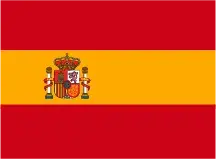
Uncertainty surrounding the implementation of e-Credits continues to grow as the key date for their implementation approaches.
Laura Vélez de Mendizabal, Spain eMobility expert at Transport & Environment (T&E), warns Mobility Portal España that there is not much information available on the progress.
“Following the public consultation in which we participated and which was held in July, we do know that the Ministry of Ecological Transition and Demographic Challenge is working on it,” she says.
However, she adds: “We are not sure that the planned implementation date of May will be met.”
In an attempt to obtain official responses, Mobility Portal España contacted MITECO to find out the current status of the mechanism.
In this regard, the Secretary of the Director of Communications assured that “they are studying the responses received and will soon publish a proposal for public information.”
Meanwhile, the sector is still waiting for concrete definitions.
What benefits will e-Credits bring?
The renewable electricity credit mechanism for transport is part of the RED III Directive.
This requires Member States to set up systems so that economic operators supplying renewable electricity to zero- and low-emission cars receive credits.
Its objectives include, among other things, the adoption of electric vehicles and the expansion of the charging infrastructure.
Energy efficiency and the use of clean energy are also expected to increase.
e-Credits can be sold to fuel suppliers to help them meet their obligations.
From a practical perspective, they allow for improved return on investment in charging points and therefore facilitate the financing of new infrastructures.
This mechanism does not require public funding, making it a tool for generating additional income by selling renewable energy certificates.
Since the end of the public consultation in July, the responses are being evaluated, but it has not yet been defined how the system will be structured in the country.
Will Spain arrive on time?
The regulations must be fully transposed by May 2025.
However, the sector is aware that deadlines may be affected by various factors.
“Based on our experience with the transposition of RED II, we understand that Member States are at different levels of maturity in implementation,” notes one expert.
“This variation could lead to delays in achieving full transposition,” he added, which opens up the possibility of a scenario in which the implementation of the system is postponed.
One of the main challenges in its implementation lies in the uncertainty about which model to adopt.
The debate is currently on whether e-Credits should be based on energy content or on a greenhouse gas scheme.
This dilemma is not minor, since the choice of approach will have an impact on the integration of the system with existing regulations.
Technical issues also need to be resolved, such as the digitalisation of transaction recording, the valuation of renewable electricity and the efficient transfer of credits between market players.
To this end, the sector proposes digital tools such as APIs that streamline the exchange of information between freight operators and other relevant actors.
Automating these processes would be key to avoiding unnecessary bureaucracy and ensuring efficient deployment of the mechanism.
It would also reduce the possibility of fraud and simplify regulatory compliance for energy providers.
In this context, the Business Association for the Development and Promotion of Electric Mobility (AEDIVE) maintains that the implementation of the e-Credits system will be crucial to consolidate sustainable mobility in the country.
In its yearbook, the entity highlights that the update of the National Integrated Energy and Climate Plan (PNIEC) 2023-2030 already includes the e-Credits mechanism within measure 2.5 “promotion of electric vehicles.”
In this regard, electricity is recognised as a key alternative for supplying cars, in line with the Renewable Energy Directive.
In addition, revenues generated from the sale of credits are expected to contribute to compliance with European regulations for the deployment of Alternative Fuels Infrastructure (AFIR).
“We understand that MITECO has a decisive role in the implementation of this financing mechanism, which will promote renewable energies and contribute to the promotion of electric vehicles,” AEDIVE maintains.








